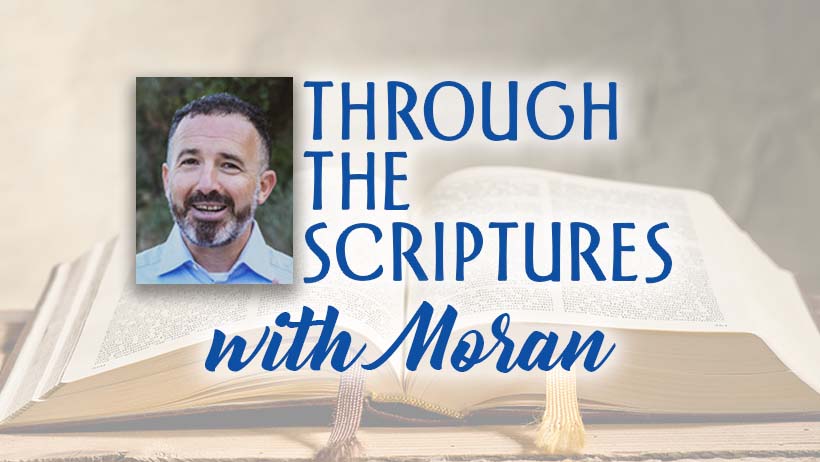
Parashat Balak
Numbers 22:2-25:9
Haftarah: Micah 5:6-6:8
This week’s portion, Parashat Balak, tells a striking story that’s just as relevant today as it was then.
Balak, the king of Moab, is terrified. He sees how Israel had just defeated the Amorites and I’m sure he heard about the way God took them out of Egypt, through the wilderness, and now they’re encamped right on his border. From his perspective, this is a serious threat not just to his land but to his position and power. So in his desperation, Balak turns to Balaam, a man whose identity is still debated. Was he a prophet? A sorcerer? A man with mixed motives? Whatever the case, Balak believes Balaam has the power to curse Israel and stop their advance.
Here’s the irony. Thousands of years later, not much has changed. Out of fear, jealousy, or misunderstanding, people still come against Israel, sometimes even in the name of the God of Israel. It’s a tragic contradiction. They invoke His name while opposing the very people and promises He has made. But just like in the days of Balak, God’s Word stands. His covenant doesn’t bend to human opinion. What He has blessed no one can undo!
That’s where the story turns. Balak wants a curse but God has other plans.
What Balak didn’t understand is that you cannot manipulate God. He didn’t know the God of Israel - not His character, not His covenant, not His grace. Balak thought that, like the pagan gods he was used to, Israel’s God could be swayed or bought, that through the right man and the right words he could change God’s will. But God isn’t like man. He doesn’t change His mind. He doesn’t go back on His promises. And when He blesses, that blessing stands.
Balak assumed that spiritual power worked like politics or warfare, that if you find the right influence, you can shift the outcome. But he completely underestimated the faithfulness of the God of Israel. What Balak saw as a threat, God saw as fulfillment; God saw His people walking in the promises He had spoken long ago.
So every time Balaam stands up to curse Israel, something supernatural happens. He opens his mouth and instead of a curse, out comes a blessing. Every single time.
The first time, Balaam is clear. He can only speak what God tells him. And instead of a curse, he affirms God's favor.
How can I curse whom God has not cursed? How can I denounce whom the Lord has not denounced?
Numbers 23:8
He goes on to describe Israel as a distinct people, set apart, with God's presence among them.
The second time, after another attempt to manipulate the situation, Balaam again speaks a word of blessing. This time he highlights Israel’s beauty and strength.
God brought them out of Egypt; they have the strength of a wild ox... there is no divination against Jacob, no evil omens against Israel.
Numbers 23:22–23
Balak is furious but Balaam is unmoved, he can only say what God puts in his mouth.
By the third time, something remarkable happens. Balaam doesn’t even try to use spiritual manipulations anymore. He realizes that God has determined to bless Israel, and there’s nothing he can do to change it. So the Spirit of God comes upon him (Numbers 24:2), and under the Spirit’s power, Balaam speaks one of the most powerful blessings in the Bible:
How beautiful are your tents, O Jacob, your dwellings, O Israel! Like valleys they spread out, like gardens beside a river... Blessed are those who bless you, and cursed are those who curse you.
Numbers 24:5–9
Instead of weakening Israel, Balaam ends up proclaiming her beauty, security, and future victory. What began as an attempt to curse became a divine revelation of God’s unwavering commitment to His people. Balaam becomes an unwilling prophet of blessing.
This isn’t just a story from the past. It’s a picture of what’s happening today. There are still voices - loud, persuasive voices - trying to speak against Israel. The attacks may come through politics, media, or even from within those who consider themselves followers of the one true God. And in moments like these, we have to ask ourselves, will we join the crowd, stay silent, or will we stand firm on the truth of God’s Word?
I want to be clear. Supporting Israel doesn’t mean agreeing with everything the Israeli government does. Like any government, it is made up of flawed people and imperfect policies. There’s nothing wrong with honest criticism of leadership or decisions. But we need to check our hearts. There is a fine line between criticizing policy and criticizing a people. When criticism shifts toward generalizations about “those people” or “the Jews,” or when it questions the very legitimacy of Israel, that’s no longer about policy, that’s spiritual rebellion. That’s resisting what God has established. And that’s dangerous territory.
God’s promises are still in place, His covenant has not changed, He is the same yesterday today and forever. And when He blesses something, no person, no system, no nation can undo it.
That’s exactly what we see in the Haftarah as well. In Micah 6:5, God says to Israel
My people, remember what Balak king of Moab plotted and what Balaam son of Beor answered… that you may know the righteous acts of the Lord.
God is calling His people to remember. Not just the story, but who He is. He defended them. He silenced every attempt to curse them, and He is still doing it!
Micah continues with that powerful verse which we ought to know by heart.
He has told you, O man, what is good. And what does the Lord require of you? To act justly, to love grace, and to walk humbly with your God.
Micah 6:8
Justice, grace, humility. These are not in conflict with standing for truth. They’re how we do it. We don’t stand with arrogance but with clarity. We don’t compromise to be accepted. We stay faithful to what God has said no matter the cost.
Even Balaam, someone not known for integrity, was only able to speak what God allowed. If he couldn’t speak against Israel when God had blessed her, how much more should we, as people who love the Lord, be bold in standing for His truth?
We are living in a time of rising pressure and growing compromise. But the message of Parashat Balak is clear. When the world says “curse” we say what God says. We bless what He blesses. We stand firm not in anger or pride but in a humble loyalty to God and His Word.
May we be found faithful in this generation. May we refuse to move from the truth. And may our voices echo what Balaam was forced to say, only we will choose to say it, and live it:
Blessed is everyone who blesses you, O Israel, and cursed is everyone who curses you.
Numbers 24:9
Shabbat Shalom,
Moran


One Comment on “God’s Permanent Blessing”
In some ways, Balaam seems so sincere. He calls יהוה “my God.” He even does what God says in blessing Israel. The right words come out of his mouth, but apparently they were not from his heart.
This part of the Balaam story seems so perfect. It is only through latter revelations that we know there was a problem, which makes Balaam such an enigma to me.
I would really like to know who he was and more about what actually happened.
To your conclusion… amen. May it be so. And may the eyes and hearts of many be opened to accept what God has said.